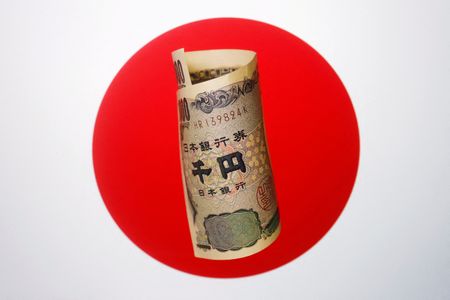By Tetsushi Kajimoto
TOKYO (Reuters) – Japan’s current account suffered the biggest year-on-year decline in the first half of this fiscal year since the 2008 global financial crisis, as the trade balance fell into deficit due to a weakening yen and rising global commodity prices.
In the April-September period, the current account surplus more than halved from a year earlier, falling 58.6% to 4.8458 trillion yen ($33.36 billion), data from the Ministry of Finance showed on Wednesday.
That was the biggest fall since the second half of fiscal 2008 and the second-largest since comparable data became available in 1985.
The current account surplus fell to a level last seen in 2014 when rising oil prices tipped Japan’s trade balance into the red, the data showed.
Meanwhile, Japan posted a record primary income surplus of 18.2332 trillion yen in the first half of this fiscal year as rising global commodity prices boosted profits at trading companies and a 22% fall in the yen to the dollar helped inflate the value of gains from overseas investments.
The income gains more than offset a trade deficit of 9.2334 trillion yen.
The data highlights an ongoing shift in Japan’s main source of earnings, away from trade towards returns from overseas investments.
Japan’s current account surplus has long been regarded as a sign of export might and a source of confidence in the safe-haven yen, but the account has occasionally fallen into deficit on a monthly basis in recent years.
For the month of September, Japan’s current account surplus stood at 909.3 billion yen, above economists’ median forecast for a surplus of 234.5 billion yen in a Reuters poll.
While a weakening yen makes imports more expensive, it also makes exports cheaper for foreign buyers. But the boost to exports from a weaker yen will likely be more limited than expected as firms have shifted their production abroad over the past three decades.
($1 = 145.2400 yen)
(Reporting by Tetsushi Kajimoto; Editing by Stephen Coates and Ana Nicolaci da Costa)

